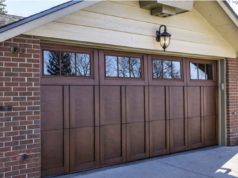Durbin Questions Trump Administration’s Commitment To Air Safety
Senator Also Leads Colleagues In Call For Boeing To Stop Charging Extra Fees For Safety Features On Their Aircraft
WASHINGTON — (RealEstateRama) — U.S. Senator Dick Durbin (D-IL) today at a Senate Appropriations Subcommittee on Transportation, Housing, and Urban Development hearing, questioned Department of Transportation (DOT) Secretary Elaine Chao about the Trump Administration’s commitment to air safety, asking why President Donald Trump waited 14 months to nominate a new Federal Aviation Administration (FAA) Administrator. In the wake of two deadly plane crashes, and heightened attention surrounding FAA’s safety measures approval process, Durbin made the point that it is essential that the FAA begin to rebuild its reputation as a premiere aircraft safety agency. He also said it is extremely unusual for a 14 month delay in naming a nominee to a critical government agency that is responsible for the safety of the flying public.
“It is unusual, is it not, for an agency accepting the responsibility for the safety of aircrafts in America, to have a vacancy and a Deputy Administrator or Designated Administrator for 14 months? Isn’t that unusual?” Durbin asked.
Video of Durbin’s remarks is available here.
Audio of Durbin’s remarks is available here.
Footage of Durbin’s remarks is available here for TV Stations.
Additionally, Durbin and Senator Tammy Duckworth (D-IL), along with 15 other Senators, today sent a letter to the Boeing Company inquiring about the manufacturer’s on-going practice of charging airlines extra for safety-critical systems important to the operation of an aircraft. According to media reports, the 737 MAX 8 aircraft involved in the Lion Air crash in October 2018 and the Ethiopian Airlines crash earlier this month lacked two critical safety features that could have helped the pilots and aviation mechanics recognize false readings from the sensors connected to the aircraft’s new flight control system. The FAA and other aviation regulators did not require these features to come standard on the 737 MAX 8 and 9, and Boeing treated these systems as optional features that airlines could purchase for an additional fee.
“We have serious concerns that extra costs for these and other critical safety features—such as backup fire extinguishers in the cargo hold and oxygen masks for flight crews—may discourage airlines from purchasing them,” wrote the Senators in the letter to Boeing CEO Dennis Muilenburg. “Safety must be a standard part of our fleets, engrained in every bolt, sensor, and line of code on an aircraft. Safety features on jets that fly hundreds of passengers should never be sold as a la carte add-ons.”
Joining Durbin and Duckworth on today’s letter include: Senators Edward J. Markey (D-MA), Tom Udall (D-NM), Elizabeth Warren (D-MA), Sheldon Whitehouse (D-RI), Richard Blumenthal (D-CT), Chris Van Hollen (D-MD), Tina Smith (D-MN), Ben Cardin (D-MD), Bernie Sanders (I-VT), Dianne Feinstein (D-CA), Ron Wyden (D-OR), Kirsten Gillibrand (D-NY), Tammy Baldwin (D-WI), Robert Menendez (D-NJ), and Amy Klobuchar (D-MN).
Full text of the letter is available here and below:
March 27, 2019
Dear Mr. Muilenburg:
We write to request answers about Boeing’s ongoing practice of charging airlines extra for safety-critical systems important to the operation of an aircraft. In the span of five months, two Boeing 737 MAX 8 aircraft have crashed, tragically claiming the lives of all passengers and crew on board and raising questions about Boeing’s decision to qualify certain important safety features on their MAX 8 and 9 aircraft as options only available to airlines at an additional cost.
According to reports, the 737 MAX 8 aircraft involved in the Lion Air crash in October and the Ethiopian Airlines crash earlier this month lacked two critical safety features that could have helped the pilots and aviation mechanics recognize false readings from the sensors connected to the aircraft’s new flight control system. Based on preliminary findings from the Lion Air tragedy, sensors feeding erroneous data to the new flight control system may have caused the aircraft to pitch down wildly, resisting pilots’ efforts to keep the plane level and airborne. One feature—the angle of attack indicator—displays the readings of the system’s sensors in the cockpit. The other feature —a disagree light—alerts the pilots if the plane’s sensors are providing different readings, which could help pilots and mechanics detect a sensor malfunction. The FAA and other aviation regulators did not require these features to come standard on the 737 MAX 8 and 9, and Boeing treated these systems as optional features that airlines could purchase for an additional fee.
We have serious concerns that extra costs for these and other critical safety features—such as backup fire extinguishers in the cargo hold and oxygen masks for flight crews—may discourage airlines from purchasing them. Aircraft manufacturers are increasingly selling “optional” features—such as premium seats, extra bathrooms, or special lighting—to increase profit. But aviation safety is not a luxury upsell that airplane manufacturers should be allowed to leverage for additional revenue.
Safety must be a standard part of our fleets, engrained in every bolt, sensor, and line of code on an aircraft. Boeing should include all safety-critical systems instrumental to the safe operation of an aircraft as part of the standard cost to the airlines of purchasing their aircraft. Safety features on jets that fly hundreds of passengers should never be sold as a la carte add-ons.
In light of these concerns, we respectfully request that by April 16, 2019, you answer the following questions:
Why did Boeing opt to not include an angle of attack indicator and disagree light as standard features on the 737 MAX 8 and 9? Please detail the evidence that supported your company’s conclusion that these features were not necessary for the safe operation of the aircraft.
a. Given that Boeing included two angle of attack sensors in the 737 Max, why did Boeing not design the MCAS to automatically disengage when there was a meaningful disagreement between the two sensors, such as when one of the sensors is malfunctioning? Please explain.
2. How does Boeing determine which safety features will be “standard” on an aircraft and which will be “optional”? Please detail every safety feature Boeing offers as an a la carte purchase on the 737 MAX 8 and 9 and how much you charge airlines to purchase those additional features.
3. As of October 28, 2018, how much did Boeing charge airlines to install an angle of attack indicator and disagree light on its 737 MAX 8 and 9 aircraft? Did any airline cite the cost of these safety features as a reason for not purchasing an angle of attack indicator and disagree light? If yes, please detail the complaint.
4. As of October 28, 2018, how much did it cost Boeing to install an angle of attack indicator and disagree light on its 737 MAX 8 and 9 aircraft?
5. As of October 28, 2018, how much had Boeing collected in fees associated with the installation of angle of attack indicators and disagree lights on the 737 MAX 8 and 9 aircraft?
6. How many 737 MAX 8 and 9 aircraft in use in the United States were sold without an angle of attack indicator, a disagree light, or both as of March 27, 2019?
Thank you for your prompt attention to this important matter. Should you have any questions about this request please contact Daniel Greene of Senator Markey’s staff at 202-224-2742.






